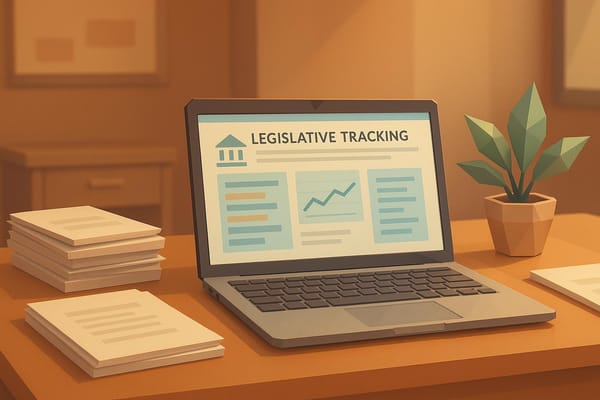New Bill Bans Drag at Libraries and Schools
HB67 redefines parental rights in Alabama, impacting youth exposure to cultural diversity in schools. A contentious debate unfolds.

The introduction of HB67 represents a significant legislative move within Alabama that aims to redefine parental rights in the context of education and public facilities. With growing public discourse surrounding the topics of gender identity and child protection, this bill seeks to impose restrictions on drag performances in school environments and to outline the circumstances under which minors may share facilities with members of the opposite sex. This legislative piece brings forth not only the perspectives of parental authority but also addresses broader societal questions about children’s exposure to diverse cultural expressions. We will explore the specific provisions of the bill, its implications for public schools and libraries, and what it might mean for the future of children’s programming in the state.
Understanding the Provisions of HB67
At its core, HB67 seeks to establish two main prohibitions concerning minors. First, it explicitly prevents public K-12 schools and libraries from presenting or sponsoring drag performances unless there is explicit consent from a child's parent or legal guardian. According to the bill, a "drag performance" is defined as a presentation in which performers use clothing, makeup, or other markers to portray a gender identity different from that assigned at birth. This definition sets a specific context for the environments where such performances can occur.
Moreover, the bill delineates circumstances under which minors may share facilities with individuals of the opposite sex during state-sponsored overnight programs. These provisions aim to enhance parental control over what children are exposed to, especially in educational and recreational settings.
The Rationale Behind the Bill
The driving force behind HB67 centers on the belief that parents should have direct authority over their children’s experiences and exposures, particularly in sensitive environments like schools and libraries. Proponents argue that this measure is essential for protecting children from experiences that parents may deem inappropriate. According to spokespersons for the bill, "Parents should have the right to make decisions regarding their child's exposure to performances that may conflict with their family values."
This advocacy for parental rights reflects a broader trend in several states seeking a balanced approach to maintaining children's innocence while still respecting personal expression and diversity. Critics, on the other hand, argue that the bill could undermine educational opportunities and exposure to various cultural perspectives, thereby limiting children's understanding of the world.
Impact on Public Schools and Libraries
Public educational institutions and libraries are poised to take a significant hit if HB67 is passed, as stringent rules regarding programming could be imposed. Schools may become hesitant to organize events featuring drag performances, fearing repercussions or legal challenges if parental consent is not adequately secured. This legislative move could lead to an overall constriction of educational content. Furthermore, local libraries might also face a chill effect on hosting smaller, community-oriented performances that could engage students.
The ripple effect could limit opportunities for inclusivity and diverse representation, thus affecting the vibrancy of local cultures and community expression. Some educational leaders have raised concerns about the potential chilling effect on artistic expression, stating that, "If schools shy away from difficult but important discussions about gender, it could stifle creativity and understanding in our youth."
The Legal Framework: A Closer Look
The legal framework of HB67 defines terms that seek to clarify the bill’s objectives. Notably, the bill specifies definitions for key terms like "drag performance" and "sex", aiming to remove ambiguity from the legislation. This clarity is critical as it ensures that the legislation is interpreted consistently across various educational and legal contexts, thereby enhancing compliance and understanding among both parents and school officials.
Additionally, the bill establishes a clear effective date, aiming for enforcement starting October 1, 2025. This planning period reflects an awareness of the need for public discussions and preparatory measures that schools and libraries will need to undertake should this bill become law.
Responses from Stakeholders
Since its introduction, HB67 has drawn responses from various stakeholders, including educators, parents, and advocacy groups. Supporters are voicing approval of the bill’s intent to safeguard children, emphasizing that parental consent should be paramount when it comes to youth exposure to unique cultural performances.
Conversely, opponents argue that this bill could lead to increased discrimination against LGBTQ+ performers and curb the cultural education of young people. They contend that, "Denying access to diverse performances in public venues not only threatens artistic expression but could also marginalize essential discussions about identity and acceptance in youth education." Advocacy groups are mobilizing to challenge the bill's implications in court if it passes.
Conclusion and Implications
As HB67 moves through the legislative process, it highlights pivotal conversations regarding parental rights, youth exposure to diversity, and the role of public institutions in fostering inclusive environments. While proponents praise it as a necessary measure to protect children’s interests, critics caution against the implications it has for artistic freedom and cultural understanding.
Ultimately, the passage of the bill could reshape the landscape of public education in Alabama, emphasizing the need for open dialogue between parents, educators, and cultural leaders. The debate surrounding HB67 will likely continue as stakeholders navigate the complexities of child protection and the celebration of diversity in education.




